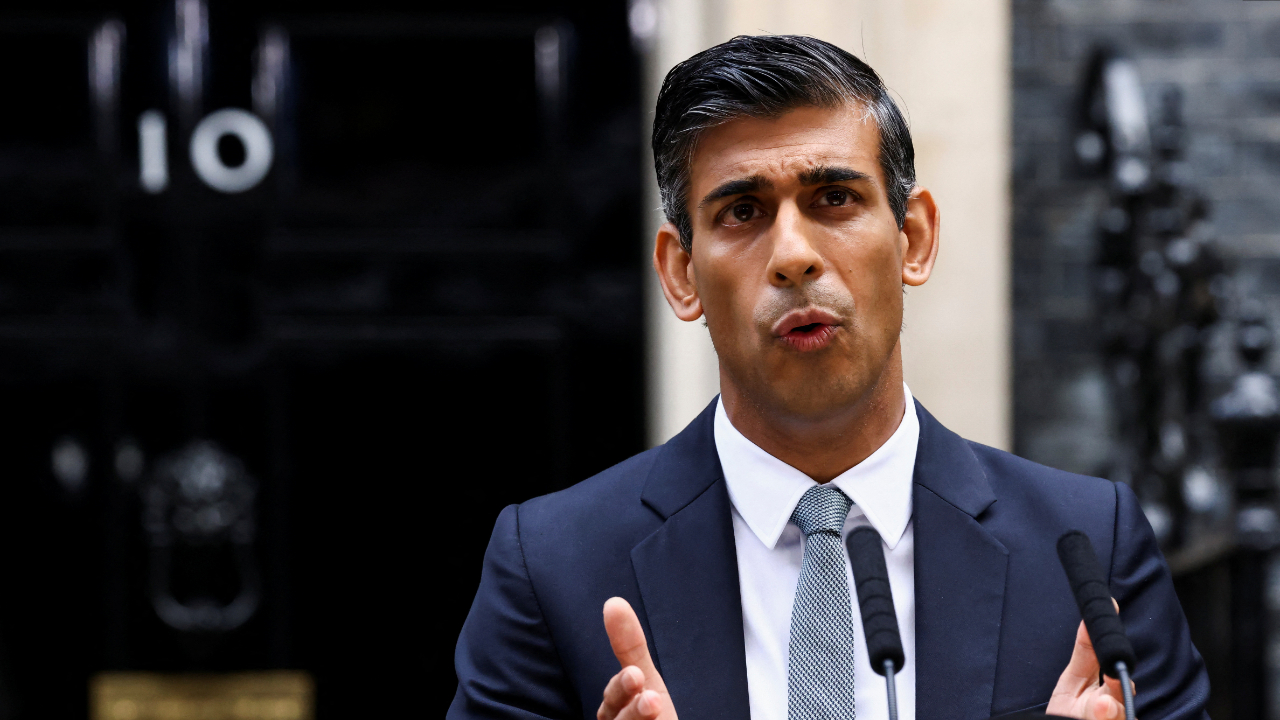It seems the government cannot see beyond Washington/New York or the Alps. Disappointingly, there were no references to prioritising a China strategy.
London: UK Prime Minister Rishi Sunak is in speech drive mode. This week Sunak gave three speeches, the most recent is the Five Promises speech about building a better future, which promised to halve inflation, grow the economy, reduce the national debt/NHS waiting lists and illegal arrivals across the channel. The Spectator’s editor, Fraser Nelson wrote that these targets will happen anyway, all were forecast under both Boris Johnson and Liz Truss. The other two messages were delivered on New Year’s Eve, the morning message was formal standing up in a suit, Sunak reviewed his government’s achievements to date regarding energy bills, record resources to the NHS, stopping criminals abusing the asylum system. He announced that 2023 will be tough but he will showcase the best of Britain on the world stage wherever it is under threat, only Ukraine was referenced. The afternoon message was more informal, sitting in an armchair leaning into camera in a shirt and tie, the theme was his government will be delivering pride, reassurance and fairness, with advance references to all the promises revealed later in Five Promises speech. Sunak is providing stability and is cautious to not over-promise, but so much of his vim and vigour during the campaign has evaporated, the messages were mundane and the delivery didactic. It seems the government cannot see beyond Washington/New York or the Alps and disappointingly for many there were no references to prioritising a China strategy, the Northern Ireland Protocol, or the economic benefits
Boris Johnson chimed in about half an hour later with his New Year greeting. Johnson began by lamenting the loss of the Queen, then began a typically optimistic riposte, confident that during 2023 inflation will continue to turn down around the world and the UK economy will recover, that China will recover from Omicron, and that Putin will lose in Ukraine. This message was seen a bit too prime ministerial under the circumstances, as the Privileges Committee inquiry into whether he inadvertently misled Parliament in 2021 is due to begin. However unlikely as it seems the “Boris Comeback” theme continues to simmer around the country.
Sunak’s government is seemingly reneging on promised reforms, the lack of follow through on the promised “bonfire of EU laws” and the complete overhaul of the online safety, whilst Whitehall will not get a revamp, and the reversing of the expected sale of Channel 4 TV broadcaster. Strikes continue unresolved, inconveniencing and endangering the population; Remainers are trying to sabotage Brexit. The PM’s Five Promises speech included a commitment to keep maths in the curriculum up to 18 years, a Labour Party idea from 2014. Sources say the PM listens too much to Gordon Brown. It is a common refrain in the UK that in trying to maintain power the Tory party has drifted too far left of centre.
There is a chasm of difference in the sentiments about conservatism between Conservative members and policymakers; traditionally, policy is guided by MPs in the parliamentary party, think tanks/spads and the membership, in today’s situation the media seem to have replaced the membership.
Meanwhile, US President Joe Biden’s visit to the UK and Northern Ireland (NI) is in jeopardy. The visit was intended to celebrate the 25th anniversary of signing the Good Friday Agreement. Sunak has opted for postponing negotiations and keeping discussions with the EU under wraps. Brexiteers want NI fully integrated with the UK and no more compromises. The White House has suggested that the NI could be a province of the EU under the control of Brussels. To raise awareness, the Secretary for NI, Chris Heaton-Harris has announced the development of a new educational package for telling the story of the Belfast (Good Friday) Agreement and NI’s transformation over the past quarter century.
Heaton-Harris has called for Stormont talks on Wednesday, 12 January, just eight days before a legal duty falls on the government to call a new Assembly election if an executive has not been formed. If a new executive is not formed by 19 January, the government assumes responsibility to call a snap Assembly election by 13 April. Leo Varadkar was re-elected Taoiseach, Ireland’s Prime Minister, for the second time at the end of 2022; he has said mistakes were made by all sides during the Protocol negotiations and has vowed to be flexible and reasonable, music to the ears of No10 and the DUP.

